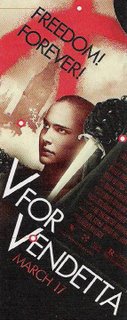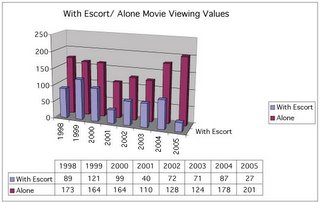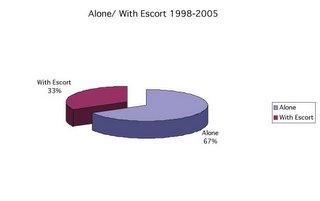 It seems anything remotely resembling a political or social statement is filtered through a post-9/11 world we all live in. Often times whatever is being discussed has nothing to do with 9/11 or the turmoil that has erupted around the world in its aftermath. Enter V For Vendetta, the first large, blockbuster to address a variety of touchy subjects that you’d think the “9/11” mindset would frown upon.
It seems anything remotely resembling a political or social statement is filtered through a post-9/11 world we all live in. Often times whatever is being discussed has nothing to do with 9/11 or the turmoil that has erupted around the world in its aftermath. Enter V For Vendetta, the first large, blockbuster to address a variety of touchy subjects that you’d think the “9/11” mindset would frown upon.Long delayed due to the London subway bombings, V For Vendetta is a film rife with built in controversy and one that has had people eagerly waiting for it to hit theatres. It’s now in multiplexes across America but are we ready to see a film where the hero is a terrorist? I hope so, no matter if the film is good or not, just for the simple fact we can step out of 9/11’s shadow nearly five years after the 2001 attacks.
Produced and written by the Wachowski Brothers—The Matrix—and directed by a protégé, James McTeigue, V For Vendetta has some important and thrilling things to say but I left the theatre wishing it had been subtler in its message. V For Vendetta is so eager to hammer home its points that at times it gets lost in its concentrated effort to do so. Subtle it is not.
The year is sometime around 2027 and the setting is London. The United States is embroiled in its second Civil War and chaos rules around the globe because of it. England is ruled by an ultra right wing totalitarian state that has crushed the people’s freedoms in the guise of their own protection.
The streets have posters of propaganda with expressions such as “Strength Through Unity, Unity Through Faith” and “A Curfew Is For Your Protection.” Government police use listening devices to eavesdrop on what citizens say in the privacy of their own houses.
Natalie Portman plays Evey, a young woman who is out after curfew and who is accosted by police thugs when a mysterious masked man arrives to fight off her attackers. Evey’s life is changed forever as this masked man—V—opens up her world to his revolutionary causes.
V, played by Hugo Weaving (The Matrix), takes his message to the people by blowing up governmental buildings, going on extremely erudite rants drowning in alliteration about how things ought to be. V wears a Guy Fawkes (17th century British revolutionary involved in the failed Gunpowder Plot) mask the entire film—which is kind of distracting at times to be perfectly honest—and has assembled a chamber of forbidden items called the “Shadow Gallery.” The government, like all totalitarian regimes, is frightened of anything that fits against their tightly controlled world.
The look of the film is full of great retro-future design (it is based on a graphic novel after all), lots of reds and blacks and is obviously in the future but not so different that it renders the setting unbelievable. Like The Matrix, V For Vendetta wants to be a big action film but about ideas rather than action itself. The action that does occur feels almost out of place to me.
It’s all very reminiscent of “Big Brother” and George Orwell’s dystopian nightmare in his novel 1984 (one of my favorite novels). V For Vendetta is then run through the prism of current events with issues such as war, the erosion of civil liberties worldwide, media manipulation of the truth, and the fact that those who lead us around the globe are very corruptible and are more similar than different, no matter their political persuasion.
V For Vendetta has a scary premise whose believability might be tied to where each person watching it exists on the political spectrum. It’s a cautionary tale in the tradition of 1984 or Brave New World that raises warnings regarding how the freedoms we’ve enjoyed should never be endangered because we might be frightened of something happening or because our government says to think this way or that way.
As the credits rolled and I walked out into the rainy Oklahoma night, I found myself thinking about ideas such as how we’ve lost some of our revolutionary spark that our nation was founded on. If that is what the makers of V For Vendetta wanted to accomplish, then they were successful.



